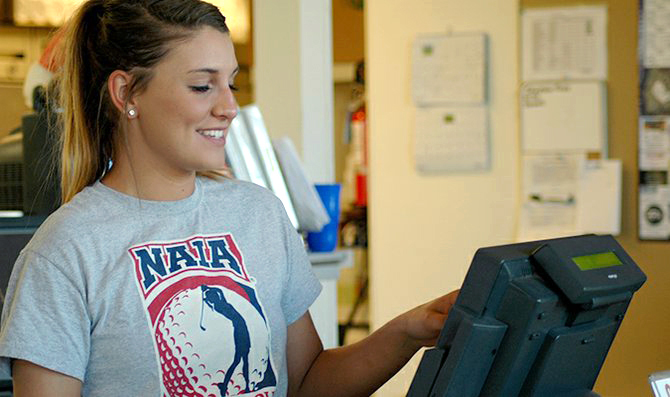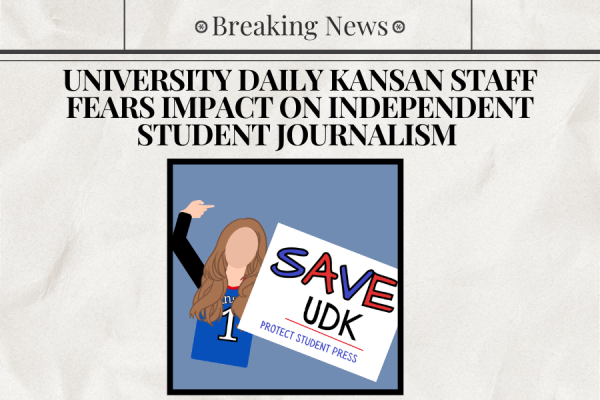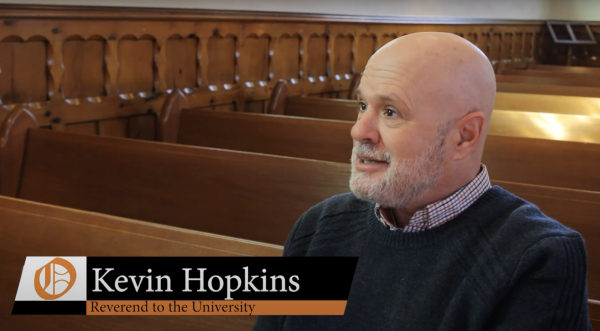Community views vary on minimum wage
With many state governments around the country discussing increasing minimum wages, Kansas has been slow to join the conversation.
For some working Kansans, this has been frustrating. To others, especially to business owners in small towns like Baldwin City, this is cause for a sigh of relief.
“I’m not saying people don’t deserve more than what they’re getting, but for a small business, if you raise minimum wage, then the cost of everything will have to go up, too,” Chip Hornberger, owner of the Baldwin City Mr. Goodcents, said. “The other factor of raising it is basically you’re going to cut employees. I think it’s just a trickle effect downhill.”
With the Kansas minimum wage currently matching federal requirements at $7.25 per hour, working adults and even students often struggle to get by. While a higher minimum wage could hurt small businesses and result in higher prices, the benefits could outweigh the costs for some students such as senior Dominique Vierya, who has been working at Mr. Goodcents since her freshman year at Baker University.
“For me, a higher minimum wage would have made quite a difference in my time here at Baker because I just wouldn’t have had to put in as many hours and would have had more free time to enjoy the college experience,” Vierya said. “Looking back on my four years now, I wouldn’t change anything, but my grades aren’t exactly where I want them moving forward, so I maybe would have been able to focus more on school.”
Some state governments, like those of Hawaii and Minnesota, have already drafted bills to increase minimum wage.
Hawaii’s House of Representatives is currently considering a bill that would slowly increase the minimum wage from the current $7.25 per hour to $10.10 per hour by 2018. Currently, Washington state has the highest minimum wage set at $9.32 per hour.
On April 10, Minnesota legislators approved increasing the state’s minimum-wage requirement for some businesses until it reaches $9.50 in 2016.
Jan Hornberger, Chip’s wife and co-owner of the local Mr. Goodcents, thinks a minimum wage set that high in Kansas could be detrimental to small businesses.
“The only solution I could see is for the minimum wage to not affect small businesses, kind of like Obamacare doesn’t affect businesses with 50 people or less,” Jan said. “So maybe they would look at small businesses as being exempt from that minimum wage requirement. Because we’re not the only ones, I’m sure there are other stores that just cringe because they know they just can’t afford it.”
Minnesota does in fact have a tiered minimum wage system like the one Jan described, but it applies to businesses that do not engage in interstate commerce and thus do not fall under the federal minimum-wage regulations. According to the U.S. Department of Labor, enterprises deemed “large employers” in Minnesota are defined as those with annual receipts of $625,000 or more and are required to pay a minimum wage of $6.15 per hour. Meanwhile, “small employers,” those with annual receipts less than $625,000, only have to pay employees $5.25 per hour.
A system like this could potentially benefit small town businesses like the ones in Baldwin City, which are infamous for having a high turnover rate of businesses, especially restaurants.
Since opening last summer, the Mexican restaurant El Patron has seemed to enjoy more success than previous Baldwin City restaurants. Restaurant manager Noel Ortiz sees a minimum-wage increase as a potential challenge but doesn’t think it would put El Patron out of business.
“It would be more expensive for the restaurant, and if it was raised to around $10, I think it would hurt a lot of businesses,” Ortiz said. “I would maybe not cut my people but I would probably have to give them shorter hours.”







